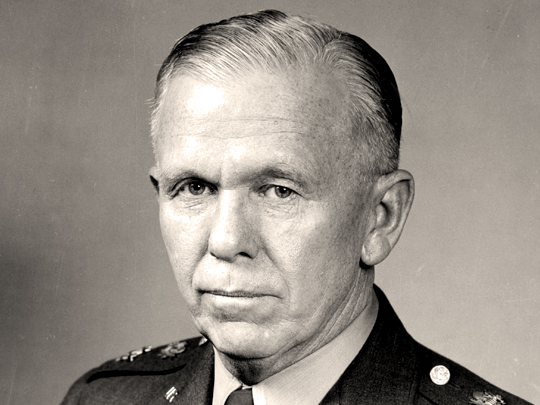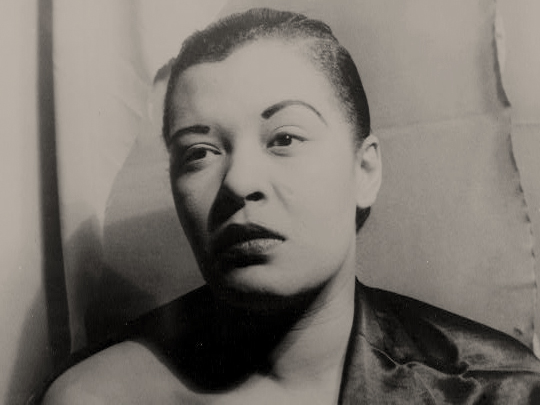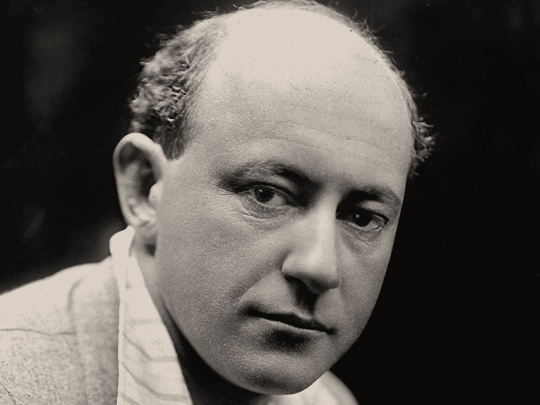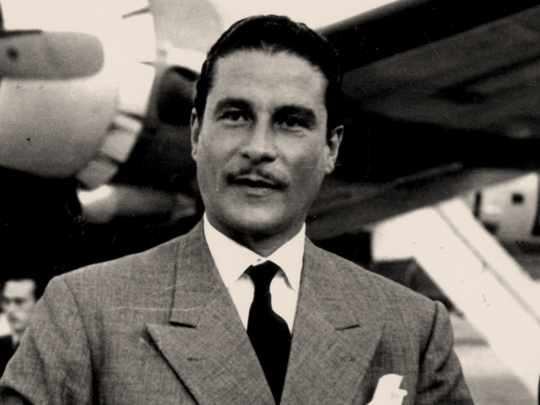Brunswick Records / Wikimedia Commons / CC-BY-SA-3.0 / GFDL
Buddy Holly
(Singer)
7 September 1936 – 3 February 1959 (Aged 22)
Holly was an American singer-songwriter who proved to be hugely influential for future rock n’ roll stars. His reputation was still growing when his life was cut short in a tragic plane crash.
While on a tour of the American midwest, Holly chartered a plane to his next gig, along with Ritchie Valens and The Big Bopper.
Shortly after take-off from Clear Lake, Iowa, the plane crashed killing all on board, including Roger Peterson, the pilot.
Don McClean references the crash as ‘the day the music died’, in his hit song American Pie.
In January 1986, Holly was among the first group of inductees into the Rock and Roll Hall of Fame.
George Marshall
(U.S Army General)

31 December 1880 – 16 October 1959 (Aged 78)
George Marshall was an American soldier and statesman who rose through the United States Army to become Chief of Staff during World War II, before serving as Secretary of State and Secretary of Defense under President Truman.
As Chief of Staff, Marshall organized the largest military expansion in U.S. history and received a promotion to five-star rank as General of the Army. He coordinated Allied operations in Europe and the Pacific until the end of the war.
In 1943, Time magazine named Marshall its Man of the Year. He was lauded for his leadership of the Allied victory by Winston Churchill, among others. prior to his retirement from active service following the end of World War II.
After the war, as Secretary of State, Marshall advocated rebuilding Europe, a program that famously became known as the Marshall Plan. In recognition of this work, Marshall was awarded the Nobel Peace Prize in 1953.
Marshall retired in September 1951 to his home, Dodona Manor, in Leesburg, Virginia to tend to his gardens. The restored home and its surrounding gardens are now open to the public as a museum.
He died in Washington, D.C.’s Walter Reed Hospital on 16 October 1959, aged 78.
Although he was entitled to an Official Funeral, Marshall preferred simplicity, receiving a Special Military Funeral after lying in state at the Washington National Cathedral.
Billie Holiday
(Singer)

7 April 1915 – 17 July 1959 (Aged 44)
Holiday was an American jazz singer, seen as one of the most influential and talented vocalists of all time.
During her life, Holiday struggled with alcohol and drug addiction, which ultimately saw her life cut short, dying from cirrhosis of the liver at the age of 44.
Following her death, many of Holiday’s records were re-released, resulting in her being posthumously awarded 4 Grammy awards.
She was also inducted into the Grammy & Rock and Roll Halls of Fame.
Cecil B. DeMille
(Film Director)

12 August 1881 – 21 January 1959 (Aged 77)
DeMille was a prolific and influential American film director who is recognized as one of the most successful and gifted filmmakers of all time.
The scale of his more ambitious films became a trademark of DeMille’s, with The Ten Commandments, Samson and Delilah, and Cleopatra among his best-known productions.
DeMille died of a heart attack at the age of 77.
In tribute to his impact on the film world, the Cecil B. DeMille Award is given out at the Golden Globes each year to recognize a person’s lifetime of achievements within the film industry.
He also has 2 stars on the Hollywood Walk of Fame.
George Reeves
(Actor)

5 January 1914 – 16 June 1959 (Aged 45)
Reeves was an American actor who became renowned for his role as Superman in the Adventures of Superman, during the 1950s.
His death from a gunshot to the head was ruled as a suicide, however, it has been questioned whether it was, in fact, murder or accidental death.
Errol Flynn
(Actor)

20 June 1909 – 14 October 1959 (Aged 50)
Flynn was an Australian actor renowned for his swashbuckling roles and his womanizing ways.
The phrase ‘In like Flynn’ was coined to reflect the ease with which he could attract women.
His most famous roles saw him play the title role in ‘The Adventures of Robin Hood’, and as General George Custer in ‘They Died with Their Boots On’.
In the early 1940’s, Flynn was accused of the statutory rape of two underage women but was eventually acquitted of the charges.
The case damaged the reputation he had attained, however.
He died of a heart attack, while also having cirrhosis of the liver.
